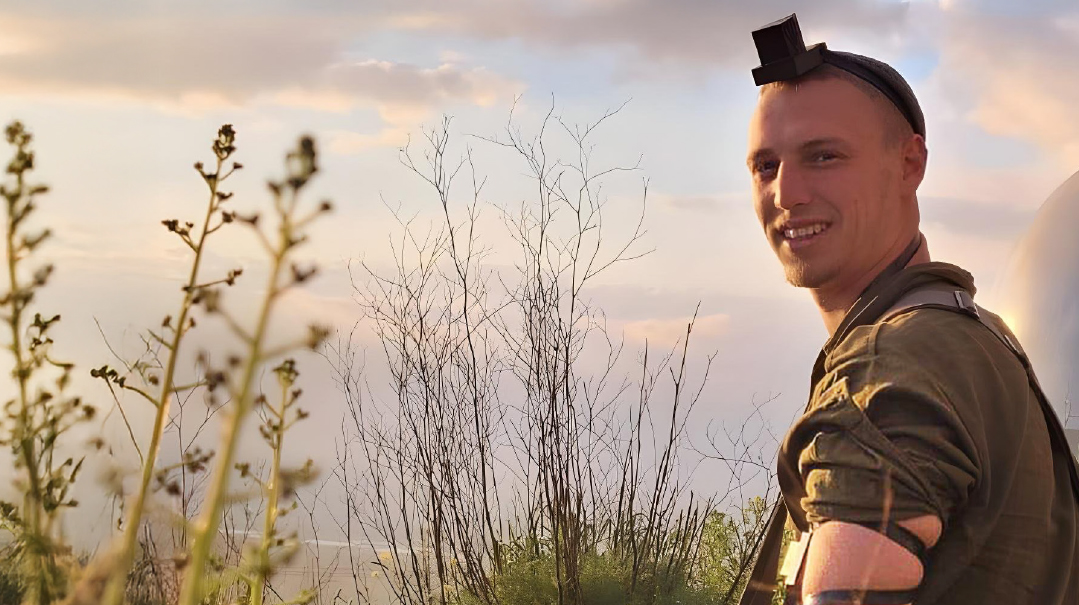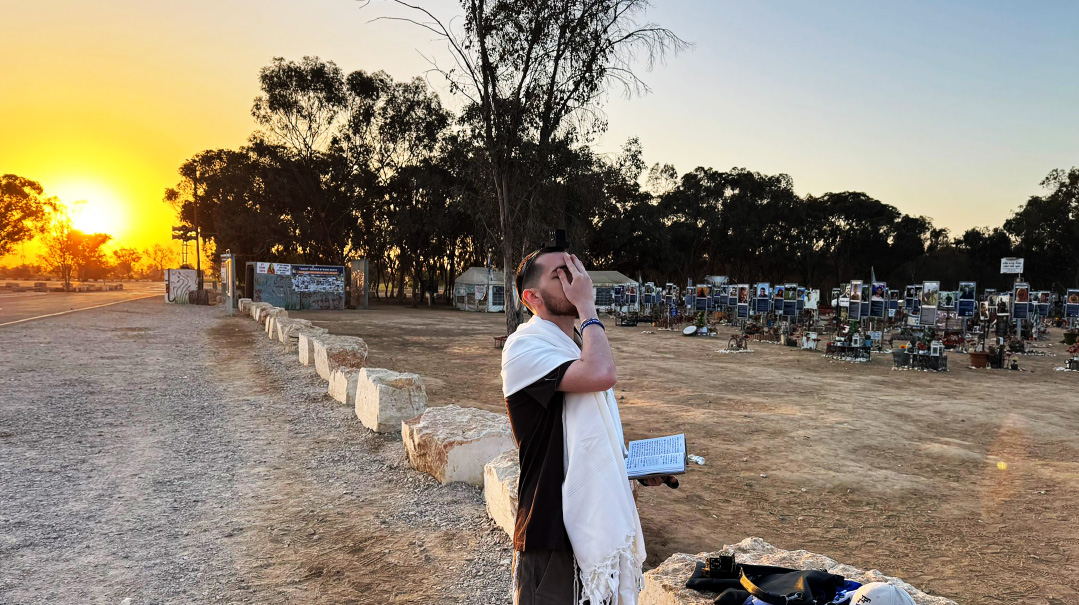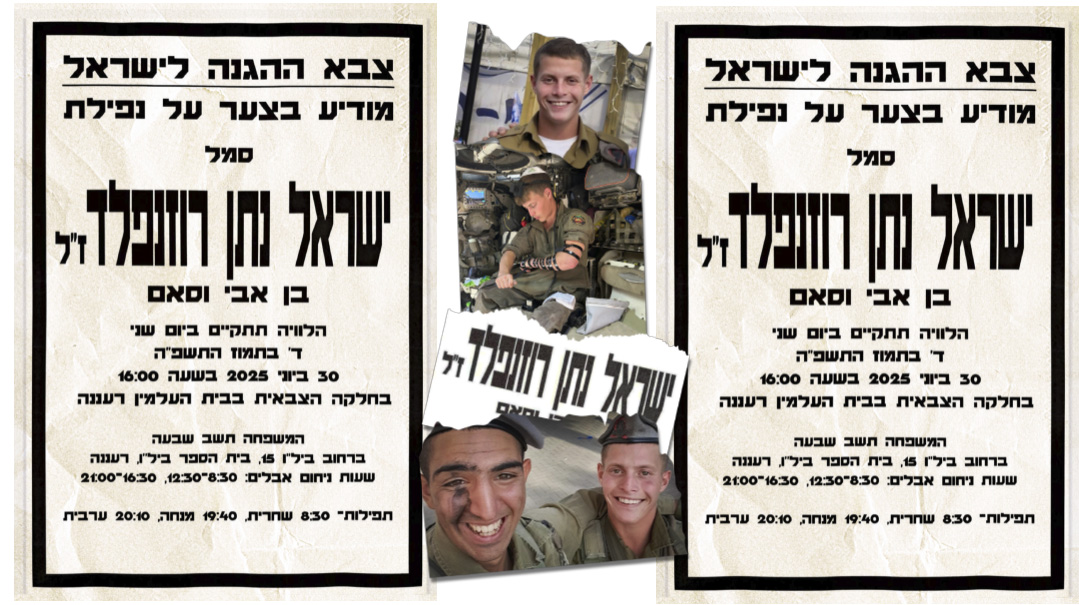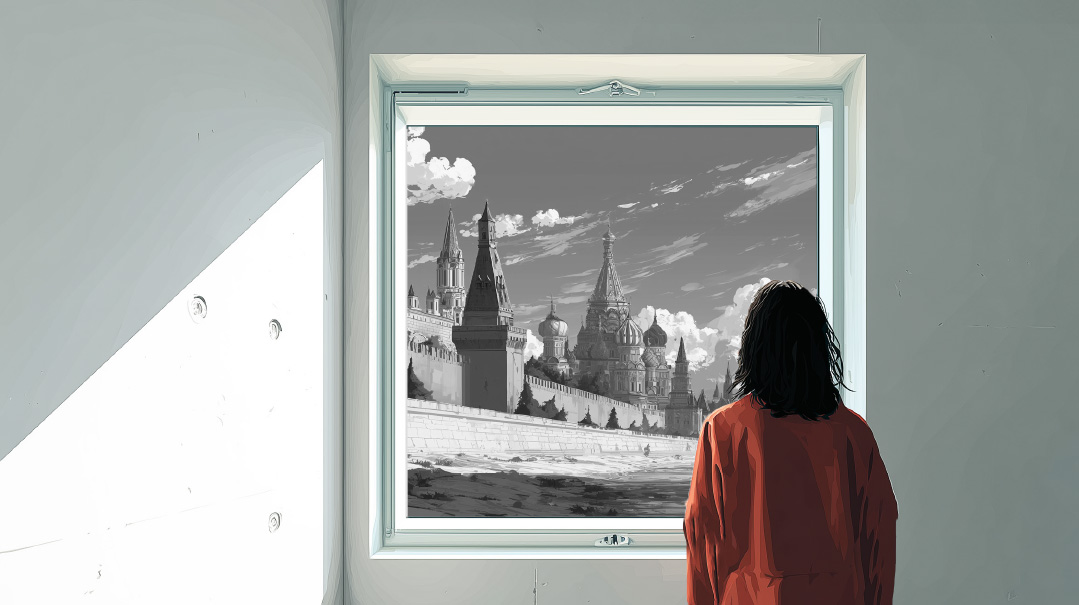Sound of a Nation
| February 13, 2024That was before the war broke out. Now the symphony has taken on a different tone
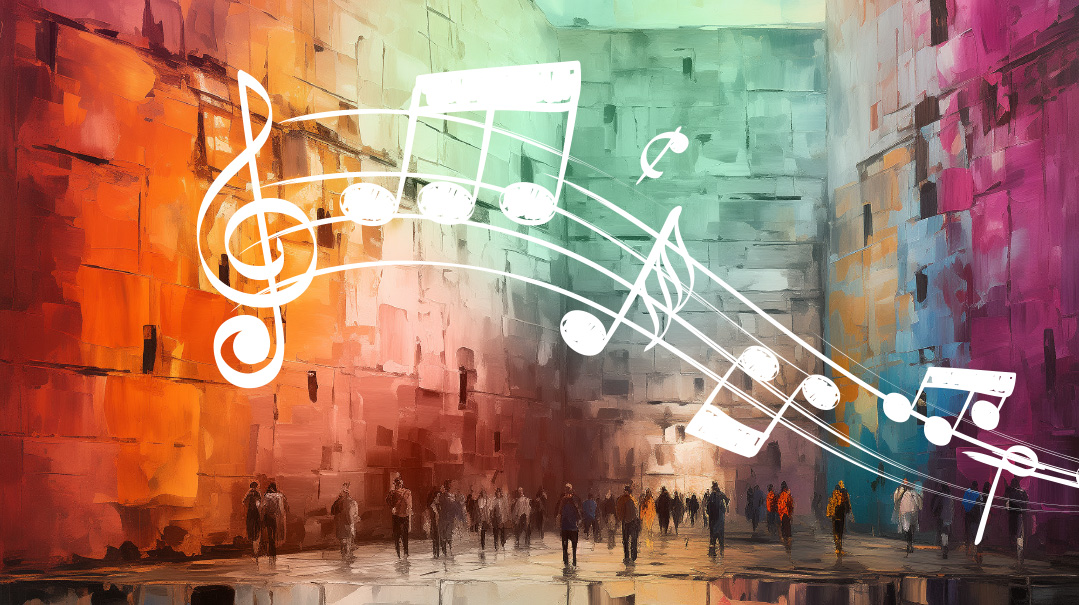
I
’m a born musician.
Music has always resonated within me, manifesting itself in the most mundane things. I’m physically incapable of being still if there’s music playing, even if it’s just in my head. I can’t comprehend how others don’t tap a finger or sway or even blink to the rhythm of a song.
When I was nine years old, we had a school trip to a performance hall where we learned about the orchestra. Each section of instruments played its tune after a description of its design, music-making capabilities, sound, and place in the orchestra. At the end, they all came together in a glorious presentation of grandeur, unity, and sublime expression. I felt like my heart would simply leap out of my chest.
My whole life, I’ve felt the power of such unity of expression, musically and otherwise. Because we’re all part of a beautiful symphony, each one of us contributing our unique voice to create the whole. In the past year, my longing to be connected to the greater whole, for everyone to be interconnected, focused on the One Conductor has intensified.
A year ago, I heard the rhythmic marching of 450 cadets entering the Latrun amphitheater in synchronicity as they prepared to take their oath of allegiance to the army. I felt the undulating wave that passed through the audience of family members when our sons, our little boys, all shouted together in a sharp staccato that they’re willing to give their lives for their country. In my mind, I heard the crystalline ping of the tears that fell in prayer for everyone’s safety.
That was before the war broke out. Now the symphony has taken on a different tone. I still hear marching, reminiscent of the pounding of thousands of feet, making their way to the Kosel in the middle of the night of Leil Shavuos. Great, purposeful strides towards a common goal of serving Hashem on the day we received His Torah and became His Chosen People.
The marching is more subtle, though. I hear it in the steady turning of pages of sifrei Tehillim being read, being sung, as Jews world over make sure that our prayers continue around the clock. I tap my foot to the beat of mixers as women bake and cook for soldiers, for families whose fathers have been called up, for displaced families, for families in mourning. My heart thrums as I listen to 1,000 musicians sing and play from their souls as they fill a different amphitheater with their impassioned plea to bring our hostages home. Twenty-four drummers attack their trap sets with the determination and conviction of their prayer. All this while the ticking clock, itself a clicking metronome, measures out the seconds of each day that go by so slowly.
I’ve acclimated somehow to the counterpoint that permeates my life. In my morning tefillah, I cry from the deepest place within me, starting with Tehillim for the welfare of my son, Moshe, and my hundreds of thousands of sons and brothers. Then I continue my day just like I did before the war. I get my kids off to school, I go to the supermarket, I teach in seminary, I learn with friends. I help a friend navigate bureaucracy, I pay some bills. I laugh with my students, I giggle with my grandson. I visit my son, Sholom Boruch, in Herzog Hospital and stroke his hand to the rhythm of his ventilator. I breathe the fresh air and enjoy the warmth of the sun. I gaze all around me and thank Hashem that I have the zechus to live in Yerushalayim.
But I also check the headlines regularly throughout the day, a new leitmotif demanding its place that affects the familiar cadence of my routine. I daven that there will be no bad tidings, that there will be no mention of the area where my son sits in his tank. And I cry when yet another neshamah is taken from us, as I send a hug wrapped in another kapitel Tehillim to the family whose lives have been irrevocably changed.
And I sing. Sometimes out loud, sometimes in my heart. I keep in mind despite the lifelong difficulties Dovid Hamelech endured, he was still able to create the most beautiful music to express the gamut of emotion contained in his holy words. And I wonder if the sounds of our collective tefillos, Torah learning and chesed are revelations of the melodies that the Leviim sang, the most sublime, powerful music that has been hidden from us in this dark galus.
This week’s symphony has been more emotional than previous ones. My mother, may she be well, came in with my brother and his family to visit and support their Israeli brethren. They and our marrieds joined us for Shabbos, our seudah sounding more like a figurative Mozart operetta, the chatter and laughter of flutes grounded by the bows of the celli playing the oft-repeated family lore. My grandson danced and pranced in the middle of the family circle to the melody of multigenerational love and connection that continues to grow. As I watched, my heart beat a thank you to Hashem to the tempo of Sholom Boruch’s ventilator, as I heard the echo of Moshe’s singing in a Shira Chadasha choir performance years ago. “Am Yisrael, l’olam lo l’vad…”
The second movement of the symphony was a trip to the Kosel with my nonagenarian mother. We walked slowly, the stony expanse worn smooth by billions of footsteps taken toward the heart of our people. It was Monday and we davened under unseasonal clear blue skies to the ululating of families celebrating bar mitzvahs. The rhythmic swaying of the women around us created a rising energy that hopefully carried our tefillos upward.
We basked in the sun’s warmth, feeling the blessing that my mother was able to daven and touch the stones of the wall yet again.
But calm second movements typically lead to stormy third movements. Tuesday was no exception. The pelting rain from the darkening skies could only be tears from the heavens as we got the news that twenty-one of our sons and brothers were killed. Ribono shel olam! How many more must we lose?!
There wasn’t a lot of time to dwell on it because I had a bris to attend. Hashem takes and Hashem gives. “Kvatter!” the mohel trumpets. (“Tatty in himmel!” I echo.) The kvatterin are the unassuming powerhouses behind GoChesed who, among their many initiatives, have connected the women of our community to the women of Ibey HaNachal. We have the zechus to send Shabbos food to many families in their caravan community where Mommy is making Kiddush every week. This baby is being showered with gadlus. El ha-kiseh goes to our sgan Rav, whose Torah (and his wife’s everything) lights up the world. But really, we’re all just close neighbors and friends.
“Bris Kodesh!” (Another fanfare.) The baby cries, I say Tehillim with so much urgency, and then all I can say is, “Geulah sheleimah, geulah sheleimah.” The tempo slows as we bow as one lifnei Melech Malchei Hamelachim.
The baby’s name is Yehuda, perhaps a reminder that we are Yehudim, that we give thanks for all the good that at times may be overshadowed by this war, and that we await Mashiach who is a direct descendent.
I come home later from work to see my extended family ensconced in my living room. It takes me a full minute to realize that Moshe is sitting on the couch, somehow having gotten a day’s leave to see his grandmother, who is sitting protectively beside him. My grandson is sitting on his beloved uncle Momo’s lap. As I take in the scene, I hear the violins playing. One by one, the wind instruments take up melodies in counterpoint to the strings’ vibrant song. It’s a tug of war of contrasting emotions, each one trying to claim more prominence, even though they’re complexly harmonious because they’re inextricably interwoven.
But then the brass section begins to overpower, regally proclaiming an important arrival, as the kettle drums beat a strong tattoo. The music swells as I find myself standing straight, a prayer in my heart that I know I share with women everywhere.
And with my tambourine in hand, I strain to hear the final shofar blast.
(Originally featured in Family First, Issue 881)
Oops! We could not locate your form.

